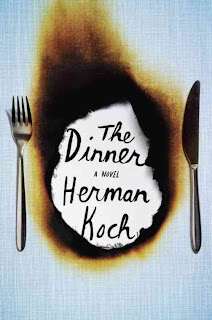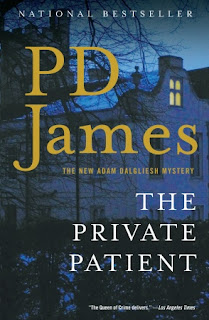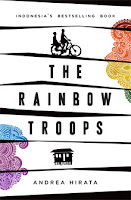Today's BBC headline is "Dutch Queen Beatrix abdicates in favour of son:"
Queen Beatrix of the Netherlands has handed the throne to her son Prince Willem-Alexander. The 75-year-old monarch signed the instrument of abdication in Amsterdam after 33 years on the throne. Willem-Alexander has now become the country's first king since 1890.To dig a little deeper, here's the Irish Times article "Dutch royals search for role as gossip-obsessed media circles new prey:"
Fond as the Dutch are of the departing Queen Beatrix, who abdicates today after 33 years on the throne, at 75 she has only limited gossip potential. On the other hand, Willem-Alexander’s Argentinian investment banker wife, Maxima, who becomes queen today, generates endless “glamour” interest, and their three daughters – known by their parents as “the Triple As” – still have their teenage years ahead of them, packed with “red-top” potential. ["Red-top" is a UK term for tabloids.]For a novel set in the Netherlands, you have several options based on your genre tastes.
For literary fiction, try The Dinner by Herman Koch:
It's a summer's evening in Amsterdam, and two couples meet at a fashionable restaurant for dinner. Between mouthfuls of food and over the polite scrapings of cutlery, the conversation remains a gentle hum of polite discourse -- the banality of work, the triviality of the holidays. But behind the empty words, terrible things need to be said, and with every forced smile and every new course, the knives are being sharpened.
Each couple has a fifteen-year-old son. The two boys are united by their accountability for a single horrific act; an act that has triggered a police investigation and shattered the comfortable, insulated worlds of their families. As the dinner reaches its culinary climax, the conversation finally touches on their children. As civility and friendship disintegrate, each couple show just how far they are prepared to go to protect those they love.
Tautly written, incredibly gripping, and told by an unforgettable narrator, The Dinner promises to be the topic of countless dinner party debates. Skewering everything from parenting values to pretentious menus to political convictions, this novel reveals the dark side of genteel society and asks what each of us would do in the face of unimaginable tragedy.For historical fiction, try The Assault by Harry Mulisch:
It is the winter of 1945, the last dark days of the ware in occupied Holland. A Nazi collaborator, infamous for his cruelty, is assassinated as he rides on his bicycle. The Germans retaliate by slaughtering an innocent family: only the youngest son, twelve-year-old Anton, survives.
The Assault traces the complex repercussions of this nightmarish event on Anton's life. Determined not to forget, he opts for a carefully normal existence—a prudent marriage, a successful career, and colorless passivity. But the past keeps breaking through, in relentless memories and in chance encounters with the other actors in the drama, until Anton finally learns what really happened that night in 1945, and why.For a murder mystery, you might like Dutch Me Deadly by Maddy Hunter:
As a travel escort for seniors, Emily Andrew-Miceli has led her feisty Iowa clan all over the world. This time, they're off to see historic windmills, classic Rembrandts, and picturesque canals in Holland - if they can ever unplug from their smartphones, that is.
Joining them is the high school class from Bangor, Maine, whose 50th reunion celebration goes south faster than a fallen Brussel sprout soufflé as old rivalries start heating up. Worse, Emily's hopes for a 100% survival rate on this trip are dashed when an important member of the tour suffers a tragic (and highly suspicious) accident.
Then the saucy seniors' wild night of drug-laced desserts and risqué shows in Amsterdam's infamous Red Light District gets even more mysterious when one unpopular reunioner goes missing…And for a thriller, try the soon-to-be-published Choke Point by Ridley Pearson:
When an award-winning foreign journalist reveals the existence of an Amsterdam-based sweatshop known as a “knot shop” that employs and enslaves young girls as laborers, private security firm Rutherford Risk is hired by a philanthropist to find it and shut it down. David “Sarge” Dulwich, Knox’s former boss from their government contractor days, knows that Knox's cultural knowledge, combat skills, and sympathy for the abused make him right for the job.
Joined by Grace Chu, whose more subtle skills for acquiring sensitive tech information help to balance Knox's improvisational style, he heads to Amsterdam in an attempt to dismantle the child labor operation and rescue the girls. In their way is a crime organization that has permeated the neighborhoods with goodwill turning even the victims' parents against their would-be saviors. With enemies around every corner, Knox and Grace can't tell the good from the bad. [Due out 4 June 2013].






































